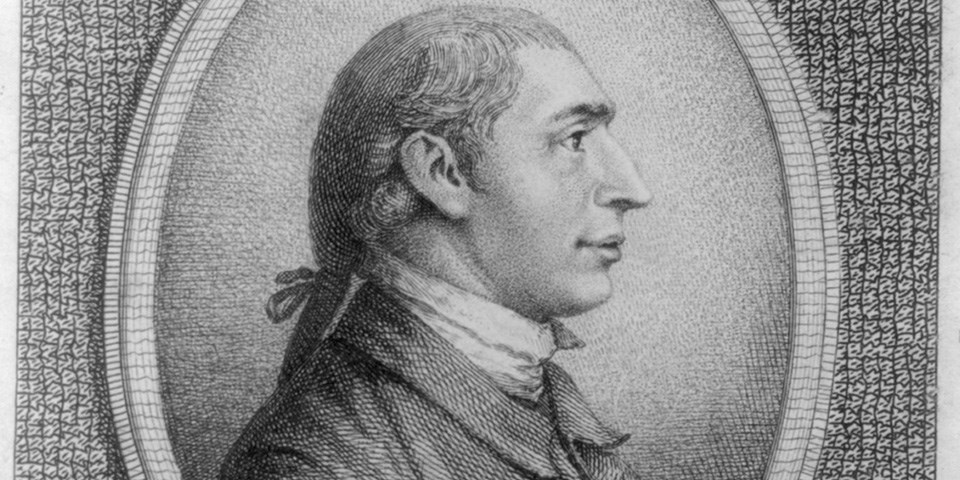Part of a series of articles titled The Constitutional Convention: A Day by Day Account for July 1 to 15, 1787.
Article
July 5, 1787: Bitter Arguments

Library of Congress, https://www.loc.gov/item/2004666612/
"This country must be united. If persuasion does not unite it, the sword will."
--Gouverneur Morris (PA), as per Madison's (VA) notes.
Thursday, July 5, 1787: The Convention Today
Chairman Elbridge Gerry (MA) reported from the Committee created on July 2 to find a compromise on the vexing issue of state representation in Congress: the first house would consist of one representative for every 40,000 inhabitants from each state and would retain the exclusive right to originate all money bills, which were not to be amended by the second house. Each state would have an equal vote in the second house. Gerry admitted that the Committee members were of different minds and agreed to the report "merely in order that some ground of accommodation might be proposed."
Intense arguments ensued:
Chairman Elbridge Gerry (MA) reported from the Committee created on July 2 to find a compromise on the vexing issue of state representation in Congress: the first house would consist of one representative for every 40,000 inhabitants from each state and would retain the exclusive right to originate all money bills, which were not to be amended by the second house. Each state would have an equal vote in the second house. Gerry admitted that the Committee members were of different minds and agreed to the report "merely in order that some ground of accommodation might be proposed."
Intense arguments ensued:
- Wilson (PA) said that "the Committee had exceeded their powers."
- Madison denounced the compromise as "departing from justice" and argued that the large states should do what they thought was right. Unmoved by the threat of the small states leaving the Convention, he claimed that the small states would eventually adopt the Constitution by necessity.
- Gouverneur Morris gave an even more radical speech. Accusing the small states of caring more about their local interests than the nation's future, he warned, "The stronger party will then make traitors of the weaker; and the gallows and halter will finish the work of the sword."
- Ellsworth (CT) accepted the proposal as the only possible compromise.
- Patterson (NJ) complained that Madison and G. Morris had disrespected the small states.
- Gerry admitted that he did not completely like the compromise but noted the "peculiar situation" of America's political reality. "We were neither the same nation, nor different nations." As a result, any proposal that left the states with either total or no power would be doomed to fail. Without compromise, he feared secession and foreign intervention.
- Mason (VA), while unenthusiastic about the compromise, found it preferable as a starting point to any alternative, saying, "he would bury his bones in this city, rather than expose his country to the consequences of a dissolution of the Convention."
- G. Morris suggested that future states created in the west should be granted less representation than the current thirteen, a proposal opposed by Mason and Randolph (VA).
- Rutledge (SC) proposed that proportional representation in the first house of Congress be based off states' wealth instead of population. When put to a vote, this proposal failed 9–1, with only South Carolina in support.
Synopsis
- The committee which was formed to create a compromise on the question of state representation presented its report.
- The first house of Congress would have proportional representation: larger states would have more votes than small states.
- The first house would be the only one to originate money bills, which the second house would be unable to amend.
- The second house would give each state an equal vote, irrespective of population.
- Madison and G. Morris angrily denounced giving small states equal representation with large states in either house of Congress.
- G. Morris insinuated that this propsal would result in civil war and foreign intervention.
- Delegates from small states supported the committee's work.
- Proposals to disempower future western states and to give greater representation to wealthier states both met a negative reception.
Delegates Today
- Dr. Johnson (CT) dined at Moyston's City Tavern and visited the Chew family. His expenses for the day were seven shillings and six pence.
- General Washington dined, drank tea, and spent the evening at Robert Morris's (PA).
- Dr. Franklin, as President of Pennsylvania, attended a meeting of the Supreme Executive Council.
Philadelphia Today
- After a clear, warm morning the day became cloudy.
Last updated: September 21, 2023
